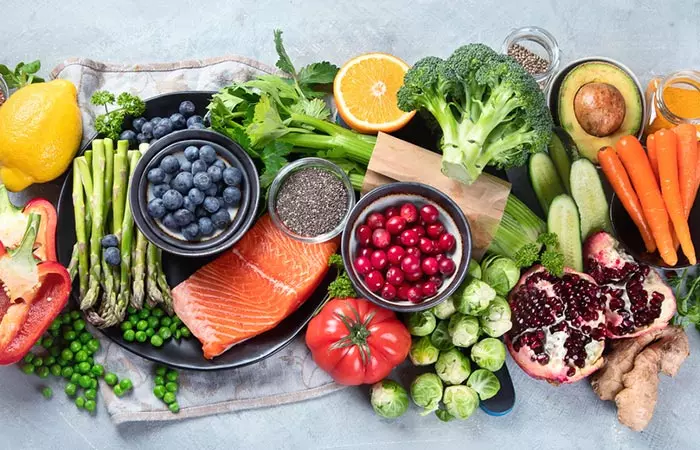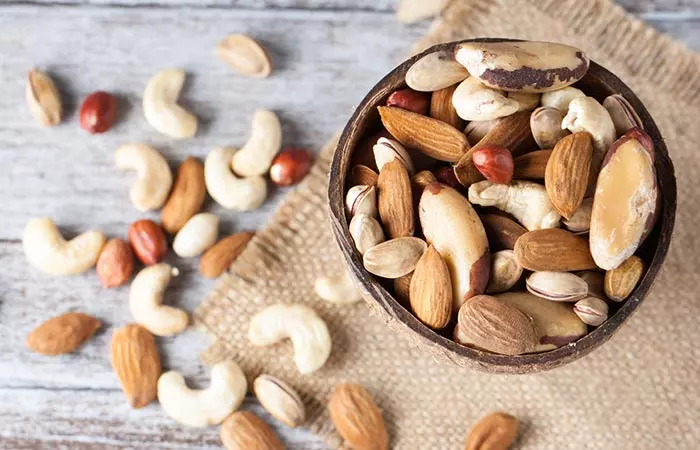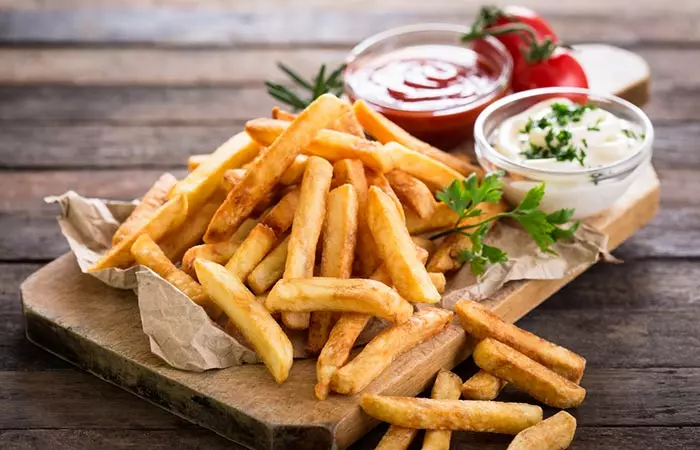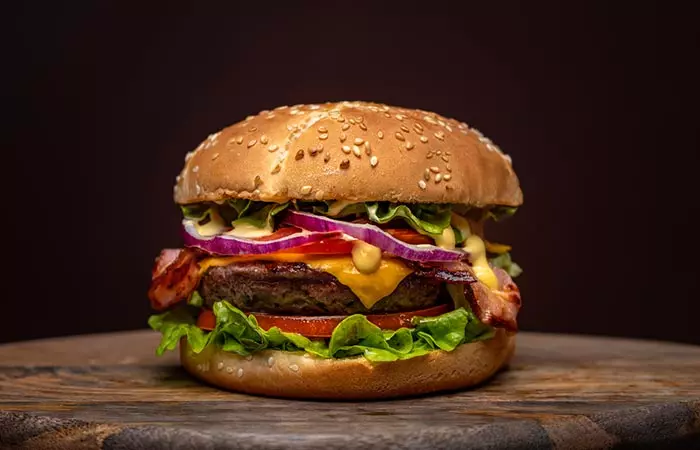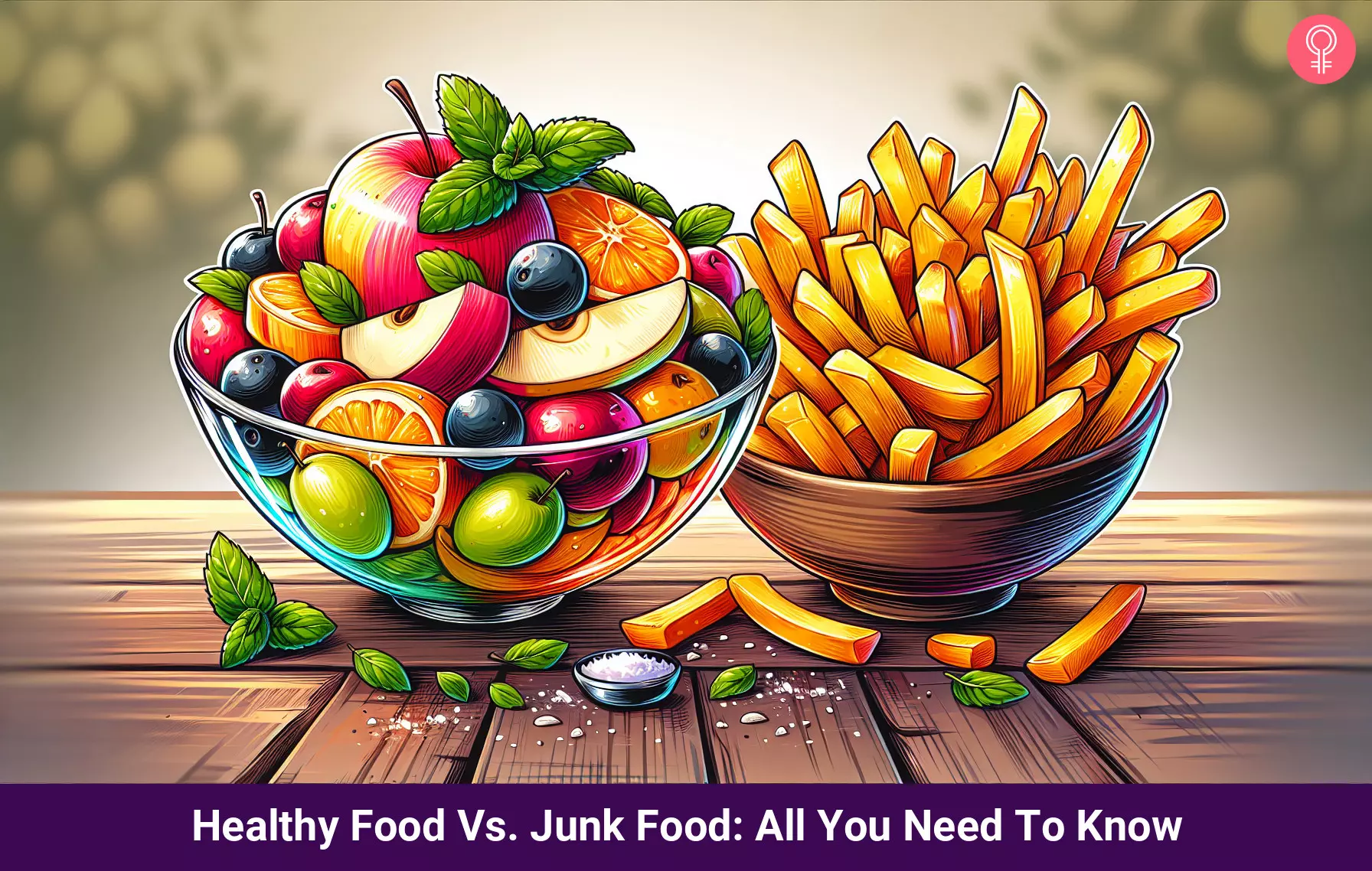Learn about how the empty calories in junk food negatively affect your overall health and how eating clean can improve your wellbeing by reading this article. Also, have a look at the foods that have many detrimental effects on your health if you consume them regularly. Keep reading to know more!
The Difference Between Healthy And Unhealthy Foods
Before diving deeper into the differences between healthy and unhealthy food, let’s be clear about a few aspects. on a few things. What exactly do junk food and healthy food refer to? Healthy food contains good fats and nutrients that are vital for your body. Healthy food items offer your body the strength and the capacity to fight against various diseases. Junk food is a highly processed food and contains a high amount of calories. These foods are harmful to your health. Most of the junk foods are available as packaged items. To get a deeper understanding of the difference between healthy and unhealthy foods, let us first delve into junk foods in the next section.
What Is Junk Food?
Junk food refers to highly processed, nutritionally poor foods that are often laden with excessive sugars, salt, and unhealthy fats. These include popular fast foods such as pizzas and burgers, sugary beverages such as cola, and different kinds of candies. Frequent consumption of junk food can take a toll on your overall health and cause nutritional imbalance as well as deficiencies in the absence of a balanced diet containing essential nutrients. It may also lead to unwanted weight gain, spike your blood sugar levels, and even mental health disorders (1). While the occasional indulgence is considered fine, a balanced diet, which majorly comprises fruits, vegetables, whole grains, and lean proteins, is essential for long-term health and vitality. The difference between healthy food and junk food often depends on their calorie and fat content. So, it is always better to know how to distinguish healthy foods from their unhealthier counterparts. Following is a list of factors that you can check to keep yourself away from unhealthy/junk food.
1. Type Of Oil Used In Food: Makes A Big Difference
There are many varieties of cooking oils on the market. But do you know which is the best among those? The key difference between unhealthy and healthy oils is the amount of saturated and unsaturated fats they contain. The oils with a high percentage of unsaturated fats are considered a healthier option (2). Olive oil and sunflower oil are low on saturated fats and are considered healthy. Whereas oils with high saturated fats like palm oil, butter, and lard are considered unhealthy. Generally, junk foods are loaded with a high amount of saturated fats and are unhealthy to eat.
2. Nutrient Value Of The Foods: Shows Its Impact On Your Health
Healthy foods are rich in nutrients that are essential for your body. Nutrients like calcium, fiber, potassium, and vitamin D are available in leafy vegetables, dairy products, nuts, fruits, eggs, fish, whole grains, and legumes. Junk foods are rich in calories, but they don’t provide you with the vital nutrients. Also, People who frequently consume junk food with low nutrient values may have nutritional deficiencies (1).
3. Refined Or Unrefined Foods: Choose The Best One!
During refining, lots of enzymes, vitamins, and fibers are lost from the oils. The refined food becomes unhealthy to some extent (1). The vegetable oils are originally good for health if consumed reasonably. Usually, the oils are partially hydrogenated to increase their shelf life. It makes them into less healthy trans-fats, which are unhealthy. The processed oil has disastrous long-term effects on the body. So, always try to use unrefined, unprocessed, and natural ingredients for maintaining better health.
4. Are You Consuming Your Daily Quota Of Vital Nutrients?
Do you know how many people around the people have nutrient deficiencies? According to the World Health Organization (WHO), more than 2 billion people worldwide are estimated to be deficient in key vitamins and minerals (3). Intake of foods rich in vital nutrients provides good health and also lowers the risk of developing health issues. At the same time, junk food has the opposite impact on your health. Fast food consumption increases the risk of metabolic syndromei A group of conditions like high blood pressure, blood sugar, and abdominal fat that increase the risk of heart disorders and diabetes. by increasing triglyceridei A type of stored fat in the body cells that forms when you consume extra calories from butter, oils, and fast food. levels. Fast food also triggers blood sugar and blood pressure spikes. Such food also increases the risk of obesity leading to cardiovascular problems and type 2 diabetes (1), (4).
5. Which Type Of Food Has More Antioxidants?
Antioxidants are essential to defend the body from free radicals, which can cause cancer (5). Healthy foods such as vegetables, fruits, and beans are rich sources of antioxidants. In contrast, junk food does not contain enough quantities of antioxidants essential for your body.
6. Are You Eating Healthy Snack Items?
Most of us tend to hog on snacks. Hence, it is important to choose healthy snacks. It is healthier to have crunchy, nutritious vegetables, such as celery and carrots with a low-fat dip instead of potato chips or French fries with an onion dip. Nuts and air popcorn are healthier than processed snacks like chips.
7. Problems Associated With Junk Food
Junk food rich in fat and sugar can be addictive. The blend of sugar and fat is mostly linked with addictive symptoms, including loss of self-control over food. Regular consumption of junk foods can further increase your cravings. Also, the added sugars, high fats, and simple carbohydrates in junk food can increase the risk of obesity and other diseases. A 2018 survey conducted on 2537 adults found that 49% of them are ‘health-oriented eaters’ i.e., prefer wholesome and nutritious foods. The other 51% select healthy food half the time or less. Furthermore, health-oriented eaters limited their intake of artificial sweeteners (53% vs. 36%), sugar (51% vs. 26%), and artificial preservatives (47% vs. 20%) compared to less health-conscious eaters (51%).
Healthy foods
What Are The Benefits Of Eating Healthy?
Convenience often takes precedence over health in our fast-paced lives, especially when it comes to food choices. However, knowing the numerous benefits of healthy foods should reassure us that making healthier choices is the right path to follow. Brandon William, a health and fitness vlogger, stopped eating sugar, dairy, and gluten for 60 days and achieved clear skin. His acne scars and eczema flares reduced with healthy diet habits. He says, “My skin has almost completely cleared up with only faint red remnants of the previous acne healing. Also, the red and itchy eczema that I had in the inside of my arm at the beginning of the challenge is now completely gone now (i).”
Healthy Eating Tips
Here are a few tips that can help you keep up the healthy eating plan.
Plan your grocery shopping to avoid impulsive purchases. Similarly, plan your meals so that you don’t go hungry and eat something directly off the shelf or from a packet. Have wholesome snacks on hand may also help reduce cravings for junk food. Try new recipes that incorporate a range of fruits and vegetables. Eat mindfully. Chew thoroughly. Do not indulge in a screen as you eat. This will help you feel more satiated. Do not eat in order to push aside emotions. Adopt different coping mechanisms like taking a walk or listening to music. If you are trying a new diet, don’t shift overnight; ease into it gradually. Avoid overly restrictive diets. It may lead to binge eating if your patience wears out.
Now, let’s look at some foods that are bad for your health in the following section.
Foods That Are Bad For Your Health
Soft drinks: Consumption of soft drinks with high sugar content could cause type 2 diabetes, obesity, and dental erosion (12), (13). Sugary drinks are harmful to your health. There is a rising prevalence of obesity, mainly in children, with soft drink consumption (14). Also, when you drink soft drinks, your brain doesn’t register them as food. Hence, you could end up consuming more calories.
The high fructose concentration in sugary beverages leads to nonalcoholic fatty liver disease (15). Added sugar is associated with cardiovascular disease (16). A decrease in sugary beverage consumption will reduce the prevalence of obesity and its related diseases (17).
French fries:
French fries and potato chips have more trans-fat and salt and are associated with larger weight gain (18). These fried foods are high in calories too. Deep-fried potato foods contain large amounts of acrylamides. Acrylamide is a proven carcinogen in rodents and has a positive association with human cancer (19).
Pizzas: Pizza is the favorite junk food for many around the globe. It is processed food with more unhealthy ingredients and calories. The highly refined grain products in pizza have been linked with weight gain. Regular consumption of these types of foods is linked with heart problems and obesity (20).
Pastries: Pastries are one of the favorite baked items for many. These are made from hydrogenated fats that are unhealthy (21). These are sweet and tasty but contain many preservatives and no essential nutrients.
Sandwiches: Sandwiches are high-fat breakfast items that have a negative impact on your heart. The high fat in warm bread slices, cheese, and processed meat can slow down blood flow in the arteries (22). These foods can impact blood vessel function and increase the risk of cardiovascular disease.
Burgers:
Burgers are high in cholesterol, saturated fat, and salts. The high sodium content in burgers can elevate blood pressure (23), (24). This condition may also lead to stroke and kidney diseases.
Processed Meat: Processed meat intake is linked with colon cancer (25). It can also be linked to coronary heart disease, diabetes, and stroke (26).
White bread, low-fat yogurt, high-calorie coffee, ice creams, most fruit juices, and full cream cheese could also negatively impact your health. Consuming these unhealthy foods on a regular basis may result in chronic health problems, such as metabolic syndrome, a group of disorders that increase the risk of diabetes, heart disease, and stroke. Making healthy food choices might be encouraged by being aware of these hazards. Why being healthy is important? Good physical and mental health is crucial for a fulfilling life. It empowers you to handle challenges and make the most of opportunities, both in personal and professional aspects. Your good health also benefits those around you, promoting well-being and progress in your community. Embrace healthy habits and reap the rewards for a better present and future. What are the 5 healthiest foods? Nourish your body with these five superfoods for optimal wellness: nuts, berries, kale, spinach, and broccoli. They are packed with nutrients, easy to incorporate into meals, and provide numerous health benefits. Embrace their goodness and boost your health and wellbeing. How much junk food is OK? It is not recommended to have junk food to lead a healthy lifestyle. However, there is no harm in having it once in a while. You can consume junk food once or twice a week if you are physically active. Also, it is important to have it in moderation. Is junk food bad for the brain? Junk foods like cookies, burgers, chips, and other packaged foods may contain trans fat. These have an adverse effect on the brain and nervous system as they can alter the ability of neurons to communicate and reduce mental performance (27). Can I eat junk once a day? No. Eating junk food once a day may not be good for the health and may gain more weight. Is white rice junk food? No. white rice is not junk food. It is a staple food source with a healthy nutrient profile. Does junk food affect IQ? Junk food consumption may affect the brain, as discussed above. However, there is no scientific evidence that suggests it affects the IQ of a person.
Illustration: Healthy Food Vs. Junk Food: All You Need To Know
While you may know what foods are healthy and what are not, making the right choices is hard. But understanding the deeper differences between nutritious and unhealthy foods can help. Check out the following video and help yourself make healthier decisions for a better lifestyle.

